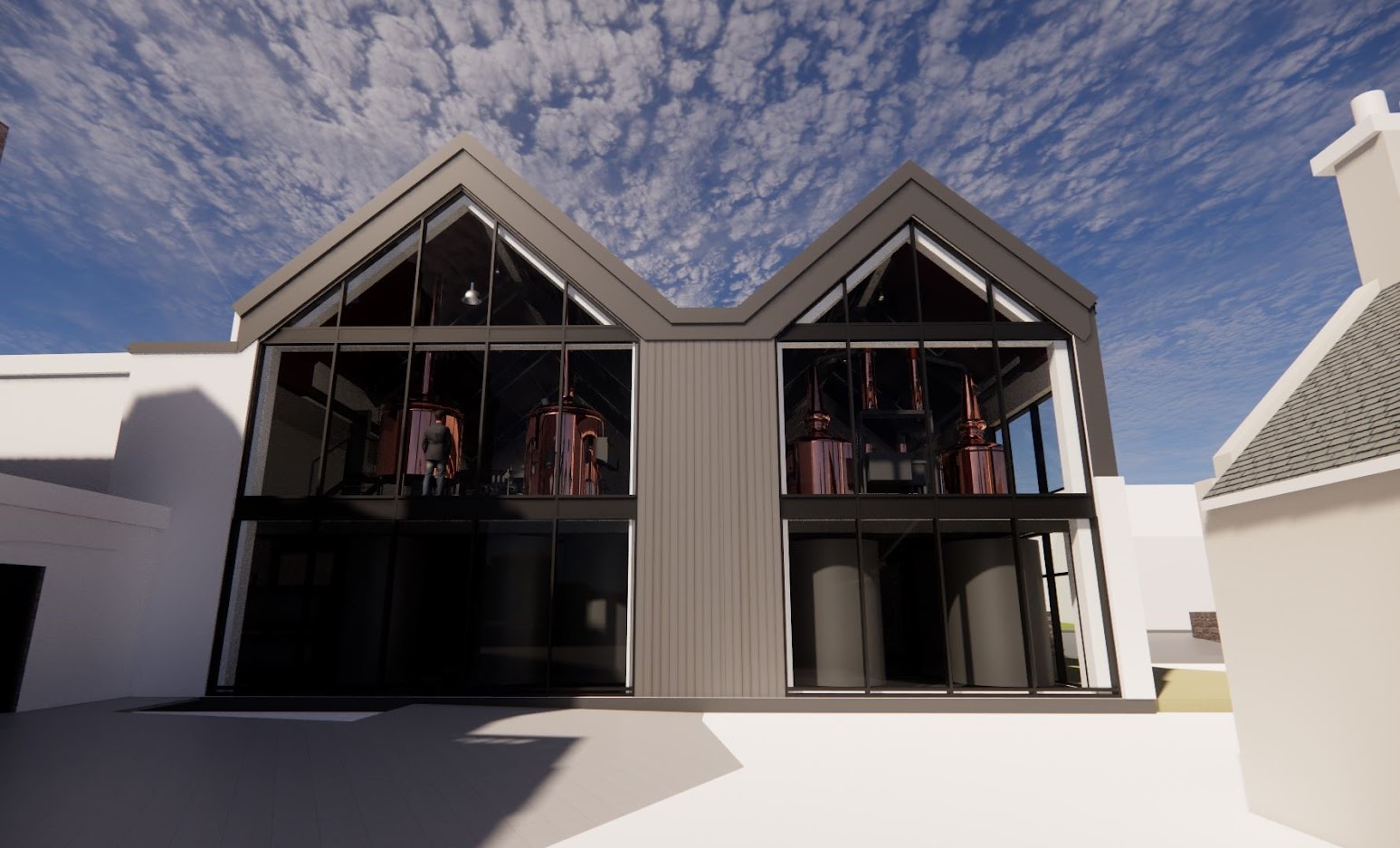Whisky in the capital of the Scottish Highlands

The 1980s and the crisis that the Scottish distilling industry faced at the time brought irreparable losses to the industry. At that time, many distilleries that whisky enthusiasts remember with a tear in their eye were closed, but also a fair number that we have managed to forget about. Indeed, while Brora has already started operating again, intensive work is underway at Port Ellen and Rosebank to restore things to the way they were four decades ago, fate has not been so kind to dozens of other distilleries. Fewer and fewer people associate the names of Glen Flagler, Glenugie or North Port, let alone those who remember the taste of the whisky produced in them.
With the closure of three locally operating distilleries, the distillery desert became Inverness, a city considered the capital of the Scottish Highlands, one of the most important centers in this part of Scotland. Until 1983, Glen Albyn, Glen Mhor and Millburn operated here. The first two disappeared without a trace, and in their place (they were located next door) is now a shopping center. Millburn has survived in the form of parts of the buildings, over which the distinctive chimney towers. Inside, however, you'll find guest rooms, not firing apparatuses or barrels of maturing whiskey. For Millburn, or at least what is left of it, now bears the Premier Inn banner.
Uilebheist Distillery is the answer to this shortage, afflicting many at the mouth of the River Ness. The truly miniature distillery and brewery will begin operating later this year, with five core beer varieties available as early as November. The distillery part of the venture includes plans to fill about 200 barrels a year, which will make Uilebheist Single Malt Whisky one of the rarest and hardest to find whiskies on the Scottish market. The whisky will be matured in bourbon and sherry casks. As Bruce Smith, manager of the distillery and brewery, assures, it is impossible to say when the whisky will appear on the market. It will be bottled only when it is suitable for it, when it reaches the right quality. This is reminiscent of the approach taken by several other new distilleries, such as Isle of Harris and Ballindalloch, whose products we are still waiting for, despite the fact that it has been 7 and 8 years, respectively, since their founding.
In line with current trends regarding the environmental impact of industry, Uilebheist will be a plant that uses natural energy sources to the maximum extent possible. Electricity is to be provided by a turbine driven by the current of the River Ness flowing past. The water needed for all stages of production will also be drawn from there, including the water that is the primary ingredient of whisky. According to Jon Erasmus, owner of Uilebheist, by drinking the whisky produced there, consumers will literally taste the Scottish Highlands. In turn, the hot water created in the whisky-making process will be used next door at the Glen Mhor Hotel complex.
The distillery's name is the Gaelic word for monster, and it is clearly a reference to the legendary creature said to inhabit the waters of Loch Ness, from which the River Ness flows. The start-up cost of the distillery and brewery is £6 million. Forty people will find employment in liquor production, as well as in the tourist service section. It is worth quoting Jon Erasmus at this point, who announces that when it comes to visitor attractions, Uilebheist will "raise the bar" in this area. Anyone who has seen the attractions prepared for visitors at even the new Visitor Center in Glenlivet, the newly opened VC in Cardhu or the Macallan distillery knows that this is a bold statement.
We are left to wait for the promises of the owner and manager of the new plant to be fulfilled. And when visiting Inverness, drop in for a locally brewed beer. When Uilebheist Single Malt Whisky appears, we'll be sure to write about it here.
[04.07.2022 / photo: Uilebheist Distillery]